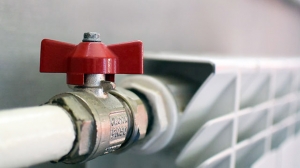Belarusian households use 1.7 times more power for heating, hot water supply in 2022

MINSK, 23 February (BelTA) – The amount of electricity Belarusian households consume for heating and hot water supply increased by 1.7 times in 2022, BelTA learned from Belarusian Energy Minister Viktor Karankevich on 23 February.
Viktor Karankevich said: “In 2022 the industry's organizations accomplished tasks and hit key targets specified by the government. Needs of the real sector of the economy and the population (heat and electricity, natural gas, peat fuel briquettes) was met in full.”
The existing incentives, which have been adopted at the level of the head of state, secured an increase in electricity consumption in a number of areas. First and foremost, electricity consumption by Belarusian households for the sake of heating and hot water supply. Last year saw this indicator rise by 1.7 times in comparison with 2021 – from 273 million kilowatt-hours (kWh) to 475 million kWh, the official said.
With approval of oblast administrations, Belarusian electric companies approved perspective plans for modernizing the power grids to satisfy the specified needs – a total of 5,700km in over 1,500 populated localities. Belarus president decree No.217 of 14 April 2020 stipulates a procedure, which allows citizens to recoup some of the money they spend on electrifying their homes. Over Br5 million was spent on it in 2022, with about 4,900 people getting reimbursed.
Apart from that, power-hungry manufacturing enterprises were responsible for increased electricity consumption in the period under review (131 million kWh). Since 1 January 2020 special load/rate tariffs have been in place for them – the more they consume, the lower the electricity price is.
2022 also saw positive dynamics in electricity consumption by electric vehicle charging stations. The amount of electricity consumed by such stations rose by 1.3 times to 14.2 million kWh.
On the whole, due to external conditions the total amount of electricity the country consumed dropped by 4% in 2022 to 38.6 billion kWh.
In 2022 consumers received 35.7 million gigacalories (GCal) of heat energy, 4.2% down from 2021. “This indicator was heavily influenced by weather – the current winter turned out to be abnormally warm, respectively the amount of heat energy consumed by the industrial complex and by the population went down,” Belarusian Energy Minister Viktor Karankevich added.













